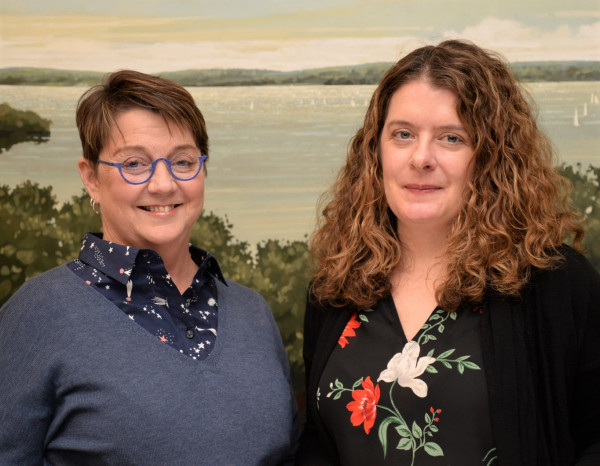Introducing CRECE (Cray-Say) at WCER
Center for Research on Early Childhood Education
January 28, 2019 | By Lynn Armitage

CRECE works to create equal opportunity for all young children through shared research, policy analyses and teacher education.
While early childhood education is a well-studied field, there is plenty of room to do groundbreaking work, believes Beth Graue, Sorenson Professor in the Department of Curriculum & Instruction at UW–Madison and a former kindergarten teacher.
Last year with support from the Wisconsin Center for Education Research, Graue launched the Center for Research on Early Childhood Education (CRECE). Its mission is focused on equity, supporting cross-disciplinary research, conducting policy analyses and connecting teacher education directly to research.
Graue says the name CRECE (pronounced “cray-say”) is quite appropriate for the new center. In Spanish, it means, “It grows.”
CRECE is on course to growing a great body of work in education research, especially with the help of its new associate director, Amy Claessens, the Gulbrandsen Distinguished Chair in Early Childhood Education at UW‒Madison’s School of Education. Claessens brings to CRECE a strong background in advocacy and lobbying for early childhood education policy. She also has extensive experience as a researcher working directly with teachers, families and home-based childcare providers. For her part, Claessens thinks the new center has enormous potential.
“It is a great opportunity for us to be part of building something in early childhood education from the ground up that will be really important on campus, in the community and in the state,” says Claessens, who worked previously at the University of Chicago’s Harris School of Public Policy.
These two high-profile researchers envision CRECE as a national center that will attract to WCER the researchers, faculty, students, educators, policymakers and diverse community surrounding early childhood education. “I am hoping this center will have an intellectual sparkle that draws people here,” says Graue. “I would love for it to be the place that people think of instantly when they think of early childhood education.”
CRECE has several goals, including building cross-disciplinary research partnerships. “Having partnerships that have strengths across domains is the only way we are going to be able to make a change,” says Graue, who is engaged in building a community of scholars with shared interests via weekly seminars, small research grants and semester-long visiting scholarships.

CRECE Director Beth Graue (left) and Associate Director Amy Claessens (right), both well-respected researchers in their field, envision CRECE as a national research center in early childhood education.
CRECE also is working with another WCER project, the Madison Education Partnership. MEP and CRECE are collaborating on studies involving 4K and 5K programs, including a Spencer Foundation-funded study on how 5K students transition to kindergarten in the Madison Metropolitan School District.
A high priority of the new center is to engage graduate students—future researchers who will one day influence the field. “A huge issue in the early childhood education field is the training of the next generation of educators and scholars,” says Claessens, emphasizing that it will be a priority at CRECE to prepare students to be leaders in the field by exposing them to a diverse range of views on early childhood education and research methods.
Traditionally, most universities have focused on teacher education and classroom learning components of early childhood education. However, CRECE researchers take a more holistic approaching by prioritizing studying young children in all the settings in which they live and learn.
“With CRECE, we are thinking about all the different informal contexts in which kids are learning—at home, at museums, with grandparents and in programs, like Head Start and Madison Out of School Time. It’s really about engaging the community,” Claessens explains. “We need to think, ‘Where are the kids?’ and bring what we know about positive development to where they are.”
In addition, CRECE is engaging local educators through its new Practitioner-in-Residence Program. In December, CRECE introduced early childhood expert Meredith Dodd to Madison researchers, pre-service teachers and local early childhood educators through a series of events. In several talks she shared innovative practices she employs at the University of Chicago Laboratory Schools. She also discussed the importance of documenting students’ learning and tapping into young students’ mathematical and literacy capacities.
“We are engaged in very exciting work,” says Graue, a University of Wisconsin‒Madison faculty member since 1990 and a WCER researcher since 2004. “Between having a colleague of Amy’s caliber and this center as an educational resource, we plan to advance early childhood education through research and practices that address the needs of the field and the potential of all young children.”


